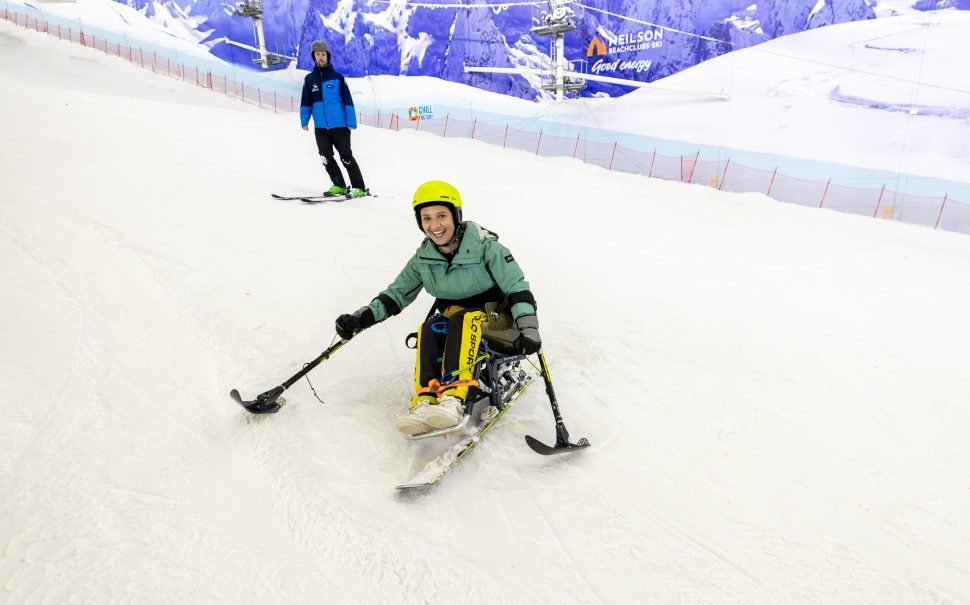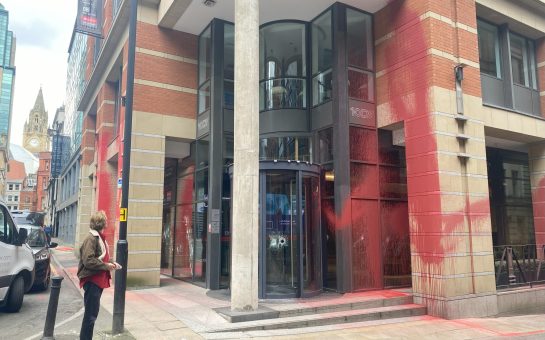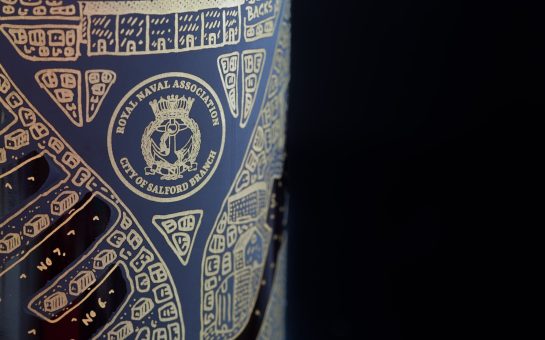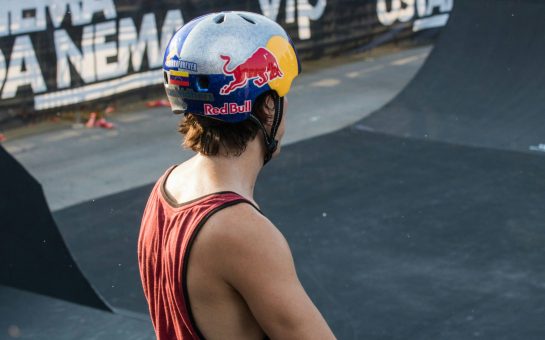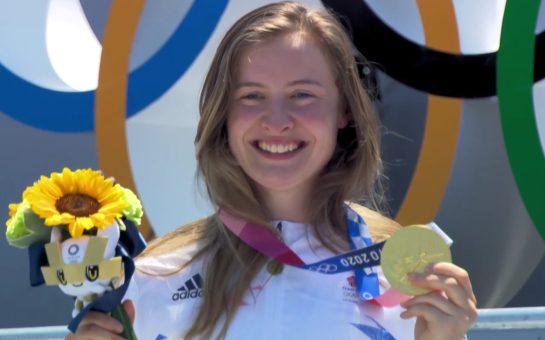In this series of articles, I will investigate how accessible Greater Manchester is for disabled people. This article will dive into accessible sports.
Manchester holds a rich sporting heritage, from iconic football clubs to Sportsperson of the Year 2024 Keely Hodgkinson. Additionally, many famous Paralympic athletes come from Greater Manchester, such as para-cycling star Dame Sarah Storey, from Poynton, and wheelchair basketballer Laurie Williams, from Altrincham.
But what accessible sports can be found in Manchester for the everyday person?
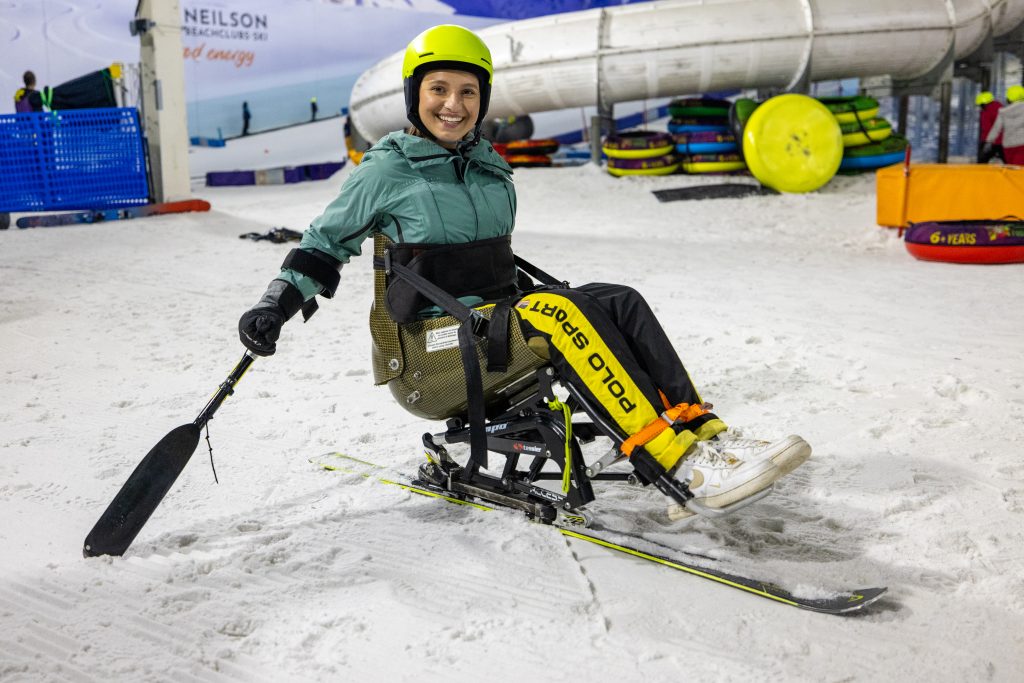
Ellie Henry has been taking adaptive ski lessons with accessible snowsport charity Disability Snowsport UK (DSUK) at Chill Factore, Trafford, for more than seven months. As an ambulatory wheelchair user, she said: “I’ve been able to get a bit of who I was before back. I was so sporty, I did every sport you can imagine; I did dance, ice hockey, climbing, football, all of it and then obviously suddenly I couldn’t do any of that.
“I hadn’t done an adaptive sport at all because I thought going back to a sport that I’d already done would feel different. I went six years without doing any sport and then I came to skiing and it was like discovering who I was before this happened.”
Ellie wasn’t aware of adaptive snowsports until her family went on a ski holiday without her. She explained: “They didn’t take me because they didn’t know what existed and in their head it was ‘you can’t ski, so don’t come’.
“I was like, ‘I’m going to show you that I’ll find a way to do it.’
“I googled adaptive skiing and DSUK came up and immediately I started watching their videos and saw them teaching people how to sit ski – and thought, ‘I could do that.’ I was excited to find out adaptive skiing existed and started finding all sorts of videos on YouTube of people around the world doing double backflips – so I saw what’s achievable and booked a lesson. I came here maybe two months later and then I’ve just not stopped since.”
Sit skiing is a type of adaptive skiing where the user sits in a carbon fibre seat attached to a single ski. Some users are given outriggers to guide the direction they wish to go down the slope, and others are tethered or bucketed down the slope by an instructor skiing behind them.
Even using the button lift is done with ease, as instead of sitting on the base it’s attached to a rope which pulls the user up the slope and can be released by a leaver on the chair when they reach the top.
Ellie finds Chill Factore so accessible that she can independently come to and from the centre completely alone. She said: “I’ve always done it completely independently. It’s good as a disabled person, there’s really not many places that I can go alone or feel confident enough to go to by myself, so to be able to come here and ski completely independently and to go down the slope on my own is great.”
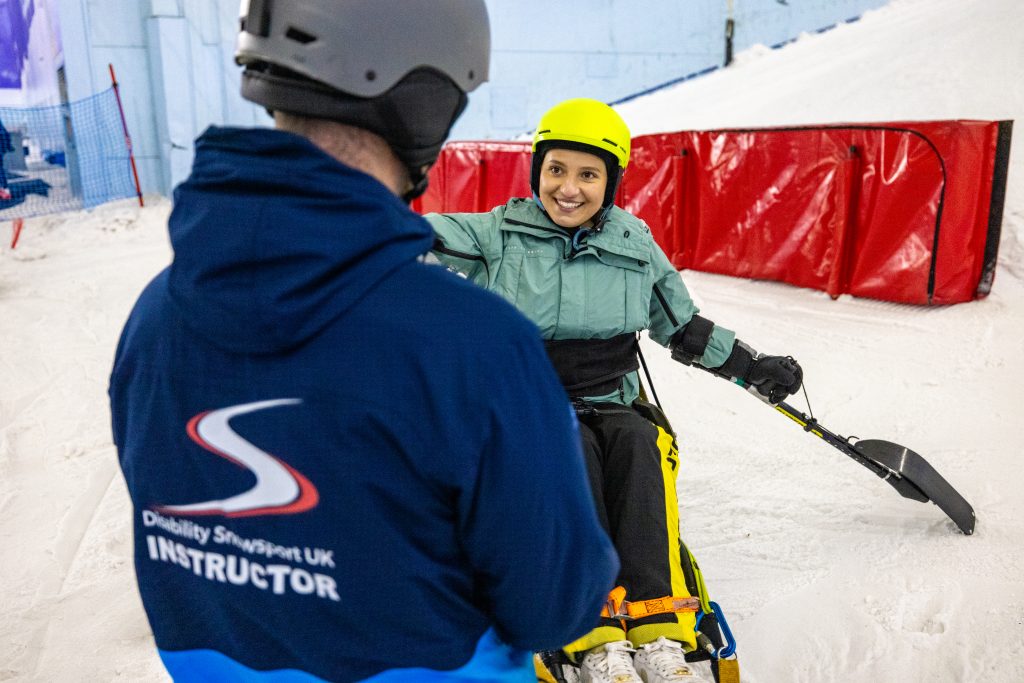
DSUK hosts adaptive ski lessons at Chill Factore, and many other centres across the UK, to ensure everyone has the option to try snowsports. The charity provides specialist instructors, across all associated UK centres, who are trained to cater to a range of disabilities.
John Lawson is the head of DSUK in the north and has been working at the charity for eight years. He was a recreational skier before he broke his back in an accident. As part of his rehabilitation he qualified as a ski instructor and learnt of the other methods of skiing that were available for those who could not ski traditionally.
On the charity’s mission, John said: “It’s about enabling and facilitating an opportunity for people to experience snowsports and, if it’s something that they take to and they want it to become part of their life, supporting them to make it part of their life by offering lessons means they can acquire skills and recreational and, for a small number of people, a competitive opportunity to make that life-enhancing and life-enriching experience.
“I think what you gain [as an instructor] is that shared experience where somebody punches the air with delight, whoops with delight, because they’ve achieved something, or has a little smile because they’ve reached a goal for them, and that is a shared human experience. It’s a privilege to be alongside people as they experience that feeling.”
Ellie was finally able to go on a ski holiday with her family thanks to DSUK. She said: “I’ve booked a trip out to the mountains with the DSUK in January, so I feel like I’m just so ready for that now.
“I absolutely love skiing.”
More information on DSUK lessons can be found here.
Like Ellie, Zara Beth lived an active lifestyle before her disability began to limit her mobility. She explained: “I did a lot of things like dance, netball, things like that when I was in primary school up until the start of high school – but I stopped doing quite a lot of that when my physical health deteriorated. It’s hard to find adapted sports that suits you because there’s quite a big gap between athleticism and accessibility.
“I found it was a hard community to relate to because I have a chronic illness, I have an energy limiting condition. I found that a lot of adaptive sports are based on spinal cord injuries, for example, if you can’t use your legs you can do wheelchair basketball. But I found that those still aren’t accessible to me because it’s still using your upper body and that hurts too for me.
“It is hard to find that balance in between where it’s friendly without the pressure to be a performance athlete.”
Although sport and competitiveness go hand in hand, they don’t always have to. Some people want to enjoy sporting activities at their own pace, like Supportability’s Wheelers sessions hosted at Woodbank Park, Stockport.
Charity Supportability have been hosting accessible ‘Wheelers’ cycling sessions to a range of disabilities since 2011 (14 years). Any member of the public, education or community group are welcome to attend a session for £3.50 per person, and carers go free.
I went down to see what these sessions involved.
I met with Opportunities Together, an organisation funded by Stockport Council, who pride themselves in providing disabled people a range of fun opportunities and days out as a group, such as the Wheeler sessions. As we walked onto Woodbank Park’s running track, we were met with a range of bikes that all functioned in different ways for different disabilities. For example, one bike’s wheels moved via turning the handlebars instead of pedals, another had four wheels instead of two to ensure full balance.
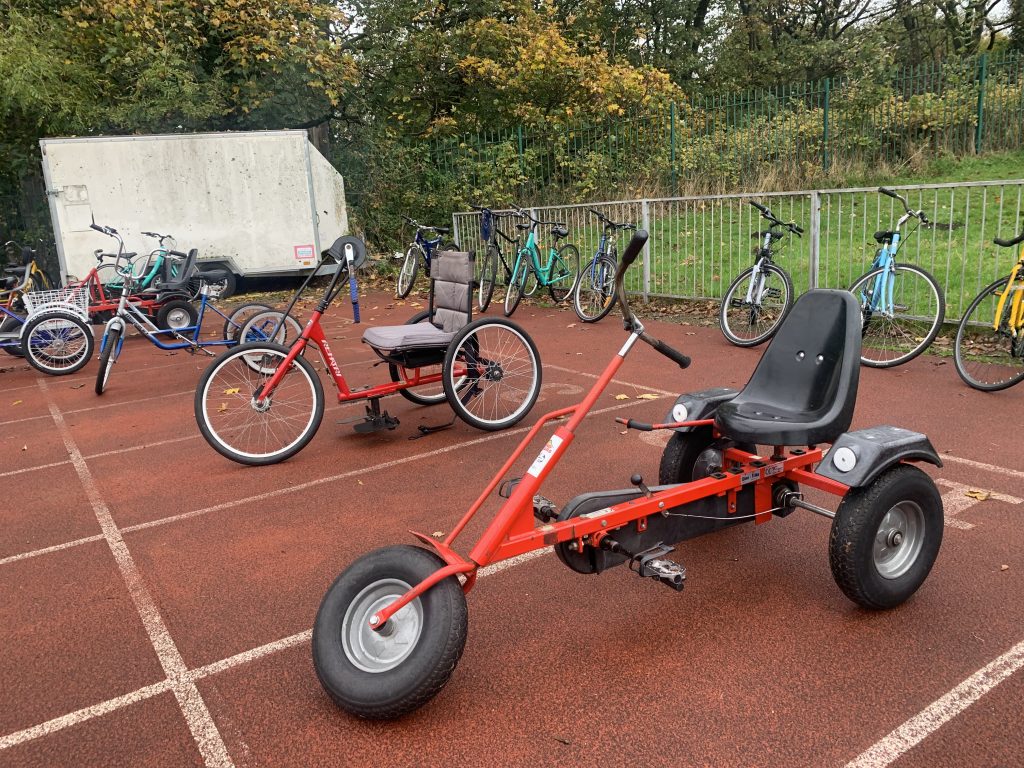
One of the participants was a wheelchair user, which was no problem. The bike had a ramp at the front for the wheelchair to be placed, on the back was a pedal bike which encased the wheelchair and was used by one of the carers. It was satisfying to see that despite his disability, he didn’t miss a chance to go round the track on a bike like his peers.
Many of the group went round the track on their own completely independently, some multiple times. The carers were on the side of the track cheering the group on as they went round the track. The carers rarely had to step in to help, they were brimming with pride and confidence each time one of the group members passed them by on the track.
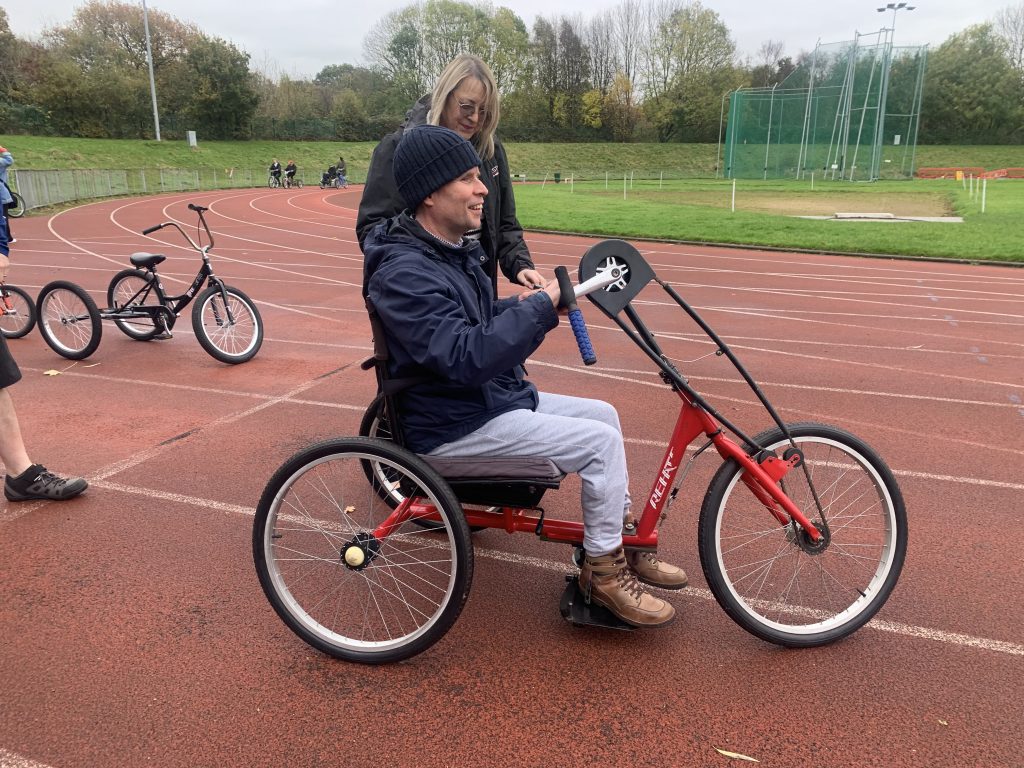
After the bike riding, the group went for a sit down and drinks in the cafe on the track, sharing their total laps to see who did the most. Everyone around the table was encouraging and positive, regardless of the number of laps everyone did.
I asked the carers why they enjoy bringing the group to the Wheelers sessions, and they said: “It’s about seeing people achieve, especially those who wouldn’t get on a bike, wouldn’t even get off the bus, and now they’re doing it.
“We’ve got one of the guys who has autism so he was very set in his routine so he only ever used to do four laps round, it was a strict routine. Now we’ve managed to get him doing five. It may only seem a little thing but the achievement is brilliant.
“It’s a safe space for people to build that confidence to be able to do laps and laps. It encourages their independence.”
For more information on Wheelers accessible cycling at Supportability you can visit their website.
Feature image credit: Cameron Ross Hall // Holmlands
